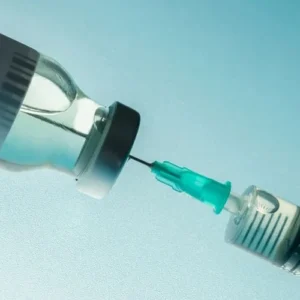On 21 October 2025, Ethiopia officially launched the R21/Matrix-M malaria vaccine, becoming the 23rd African country to incorporate a malaria vaccine into its routine immunization program. This milestone represents a significant advancement in the country’s efforts to reduce malaria-related morbidity and mortality, particularly among children under five, who are most vulnerable to the disease.
The vaccine rollout began in 58 districts across nine regions, chosen based on World Health Organization (WHO) prioritization criteria for malaria burden. In the initial phase, over 91,000 children will receive four doses at 6, 7, 9, and 15 months of age. R21/Matrix-M, prequalified by WHO, has demonstrated strong efficacy in reducing severe malaria cases and child deaths.
Ethiopia’s malaria vaccine initiative complements existing core interventions such as Indoor Residual Spraying (IRS), Insecticide-Treated Nets (ITNs), and prompt diagnosis and treatment. Together, these measures aim to reduce hospitalizations, improve school attendance, and decrease work absenteeism among caregivers, reinforcing a comprehensive approach to malaria control.
WHO has played a pivotal role in the vaccine introduction, supporting advocacy, technical guidance, development of training materials, and capacity building for national and subnational health workers. Dr. Francis Chisaka Kasolo, WHO Representative in Ethiopia, highlighted the country’s commitment to protecting children and strengthening health system resilience through this initiative.
State Minister of Health Dr. Dereje Duguma emphasized that the malaria vaccine is a vital supplement to existing prevention strategies and called on stakeholders to ensure universal coverage. Regional leaders, including Menaa Mekuriya from the South Ethiopia Regional Health Bureau, noted the profound social and economic impact of malaria and underscored the vaccine’s role in saving lives and improving community well-being.
The launch event brought together national and regional health authorities, community representatives, and international partners, coinciding with mass distribution of long-lasting insecticidal nets. Key partners supporting the rollout include Gavi, UNICEF, the Global Fund, PATH, ALMA, the Roll Back Malaria Initiative, and the Global Financing Facility, all contributing to Ethiopia’s integrated strategy for malaria elimination.







